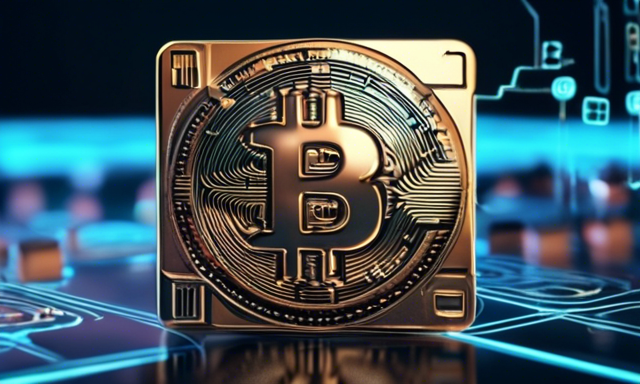Exploring Solana: A High-Performance Blockchain Platform
Are you interested in diving into the world of cryptocurrencies? If so, you’ve probably heard of Bitcoin and Ethereum, but have you come across Solana? Solana is a high-performance blockchain platform that offers lightning-fast transaction speeds and low fees. In this article, we’ll explore Solana and why it has gained attention in the crypto community.
So, how does Solana differ from other blockchain platforms? Well, it all comes down to its scalability and throughput capabilities. Unlike Bitcoin and Ethereum, Solana achieves incredible speeds by utilizing a unique combination of technologies like Proof of History (PoH), Tower BFT consensus, and a system of verifiable delay functions.
Proof of History (PoH): The PoH mechanism in Solana creates a historical record of all transactions and events in the network. This enables nodes to accurately timestamp and order transactions, eliminating the need for time-consuming consensus algorithms.
Tower BFT consensus: Solana employs the Tower BFT consensus to confirm the validity of transactions. This approach allows the network to reach consensus faster than traditional blockchain platforms, increasing its scalability significantly.
Verifiable Delay Functions: By utilizing verifiable delay functions, Solana ensures that the network remains secure and resistant to attacks. These functions introduce a deliberate delay, making it impractical for malicious actors to manipulate the system.
With its unique combination of technologies, Solana boasts impressive transaction speeds of up to 65,000 transactions per second (TPS), far surpassing the capabilities of Bitcoin and Ethereum. This means that you can process transactions faster and more efficiently on the Solana network, making it ideal for decentralized applications (dApps) and other use cases that require high-speed and low-cost transactions.
Furthermore, Solana’s transaction fees are incredibly low compared to other blockchain platforms. This affordability makes it more accessible for developers and users looking to interact with the network. Solana achieves this by utilizing a resource-efficient architecture and optimizing network operations to reduce costs.
So, what are some real-world use cases for Solana? Well, the platform is gaining popularity in the decentralized finance (DeFi) space. Developers can build various financial applications, including decentralized exchanges, lending platforms, and stablecoins, on the Solana network. The high-speed and low-cost transactions make Solana an attractive choice for those looking to participate in the DeFi revolution.
In addition to DeFi, Solana is also being utilized for non-fungible tokens (NFTs), gaming, and data storage applications. NFT marketplaces built on Solana allow for quick and secure transactions, enabling artists and collectors to trade digital assets seamlessly. Gaming platforms benefit from Solana’s high throughput, allowing for real-time gameplay and interactive experiences. Lastly, Solana’s scalability makes it an efficient solution for data storage and processing applications.
As Solana continues to gain popularity, you might be wondering about the future of this blockchain platform. Well, the potential is promising. Solana has attracted significant attention from investors and developers alike, evident from the growing ecosystem of projects being built on its network.
Frequently Asked Questions:
1. How can I start using Solana?
To start using Solana, you can set up a digital wallet that supports Solana tokens. Some popular options include Sollet, Phantom, and Solflare. Once you have a wallet, you can purchase SOL tokens from various exchanges and start exploring the Solana network.
2. Is Solana secure?
Yes, Solana utilizes advanced cryptographic techniques and a robust consensus mechanism to ensure the security of the network. However, it’s essential to exercise caution and follow best practices when interacting with any blockchain platform.
3. Can I mine Solana tokens?
No, Solana does not rely on a traditional mining model like Bitcoin. Instead, it utilizes a proof-of-stake consensus mechanism. Token holders can participate in staking to help secure the network and earn rewards in return.
4. How does Solana compare to other blockchain platforms like Ethereum?
Solana offers significantly higher throughput and lower transaction fees compared to Ethereum. While Ethereum is known for its smart contract capabilities and extensive ecosystem, Solana is gaining traction for its scalability and performance.
In conclusion, Solana is a high-performance blockchain platform that offers lightning-fast transaction speeds, low fees, and scalability. Its unique combination of technologies sets it apart from other blockchain platforms, making it an attractive choice for developers and users alike. With a growing ecosystem and diverse range of use cases, Solana has the potential to revolutionize various industries. So, why not explore Solana and see what this exciting blockchain platform has to offer?





 By
By
 By
By
 By
By
 By
By
